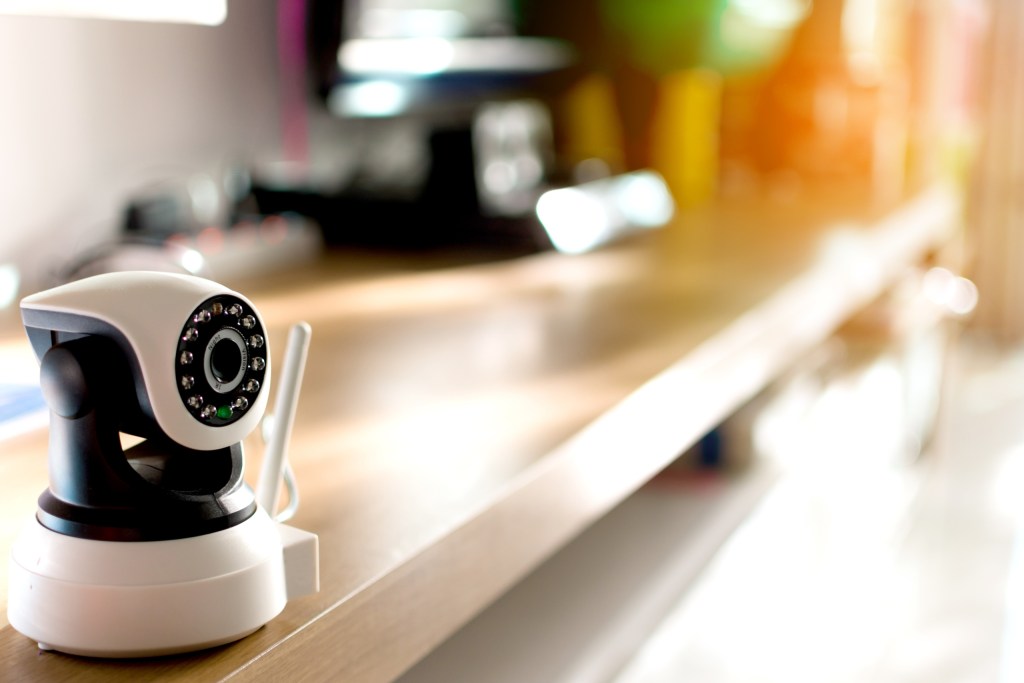So you’ve decided that it’s time to buy a home security camera to protect and guard your home from intruders or thieves. This is a big decision for many homeowners as home security cameras are not cheap! As you’ve begun your search, you may have noticed that there are several different types of security cameras.
From wired to wireless, home security cameras serve different functions to provide the best safety for your home. But what is the difference? Which should you choose? In this article, we’ll cover the basic distinctions between wireless vs. wired home security cameras to help you make your decision.
What to know about wired security cameras
As you can guess, wired security cameras involve a wire that hooks up to a nearby outlet or ethernet port in order to record and store footage. They often require professional installation and sometimes a storage device for the recorded data.
They’re a closed system
One of the key features of wired security cameras is that they are closed systems. Since the camera is often connected via ethernet to your home’s power supply, the footage is stored internally and deleted after an average of thirty days to make room for more footage.
Closed networks are harder to hack and provide a sense of more security as people will not be able to gain access to the footage outside of the home.

They use local memory storage
Since wired home security cameras don’t require Wi-Fi to operate, they are more reliable against bad connections. Wired cameras use local storage, whether through an onsite hard drive or within the camera itself. Since there is no need for the cloud or wifi for the camera to function, the camera will keep recording even if the connection meets a few hiccups.
There’s no need for batteries
Wired connections mean there is no need to recharge or swap out old batteries. This means that you won’t have to worry about the camera dying and going unnoticed or struggling to access the camera now and again in order to change out the batteries.
They’re less prone to camera theft
Since wired cameras are connected via a cable, they are less likely to become stolen. They are also often mounted into a wall or ceiling, making it time-consuming and challenging to steal the entire camera and its footage.
What to know about wireless security cameras
Wireless security cameras are some of the easiest to set-up and operate. Many homeowners value the simplicity of wireless cameras and value their portability. Wireless cameras do not require a cable for hook-up, making them a more maneuverable option for people who don’t want to mess around with lengthy cords.
They’re easy to install
As mentioned above, wireless cameras are easy to install. There’s no need to mount them to a wall or ceiling. In fact, many wireless home security cameras do best by sitting on a table or shelf where they won’t get bumped into. It’s as simple as turning the camera on, connecting it to your phone or computer via wifi and then letting the camera do its job.
Footage is cloud-based
All footage recorded on your wireless camera is uploaded automatically via WiFi to the cloud. Depending on your subscription, you can access the footage for up to a month before it is deleted. The reason cloud-based storage can be handy is that the footage is not on a physical hard drive.
For wired cameras, recorded footage is stored either on the camera itself on a separate server in your home. If a fire, flood, or any other disaster damages those physical locations, your footage could be lost forever. The cloud eliminates this worry.

They’re portable
One of the best qualities of wireless cameras is their portability. Wireless cameras can be moved to any location as easily as you move a coffee mug. All you have to do is pick up the camera and place it in its new location. No installation is required!
Beyond the camera itself being portable, the footage is also easily sent out if need be. Should a thief break into your home, you can access the footage from nearly anywhere and send out the recorded data to your local police station within a matter of minutes. Wired cameras are much more challenging to gather footage and send out.
Which is best for outdoors/indoors?
When it comes to the debate of wired vs. wireless security camera systems, everything depends on the camera’s location. Wired camera systems are best for permanent installations or for cameras you don’t intend to move for a long time. Therefore, they are also best for outdoor security as there is no need to change the batteries or move the system itself.
Alternatively, wireless systems are perfect for indoor monitoring as they are portable and easy to install and recharge in the house. They make for a faster transfer of recorded data should the need arise and are better for people who require easier access to their footage.
No matter what type of camera you choose, both help protect your home and keep it safe from intruders. Ensure you fully understand how to obtain any recorded data that your home security camera captures if you need to use the footage in an emergency. It’s also important to become familiar with indoor and outdoor home security camera laws to keep yourself safe from any potential lawsuits or invalidations.



